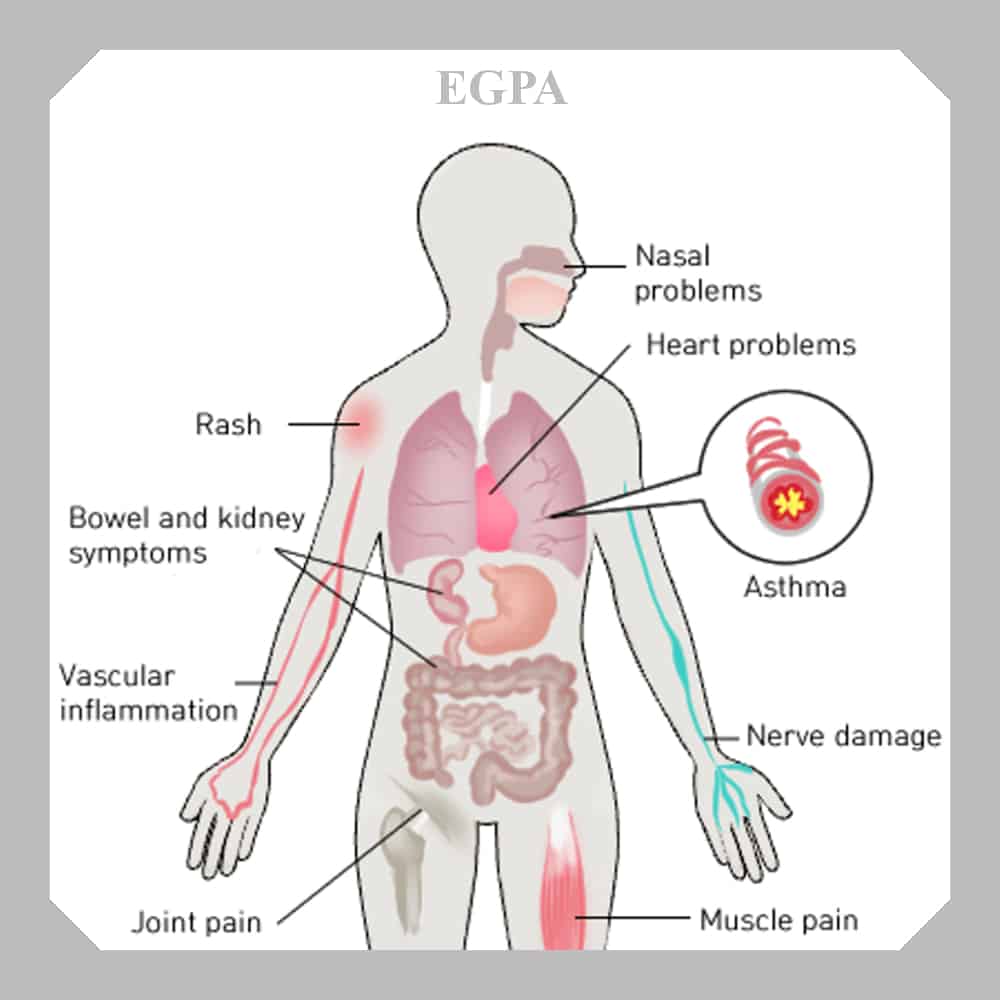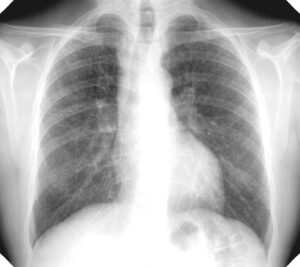Formerly known as Churg-Strauss syndrome, EGPA disease (eosinophilic granulomatosis with polyangiitis) is now recognized as EGPA disease. It is a sort of inflammation of tiny to medium-sized blood vessels, often known as vasculitis. Patients with asthma and a history of allergies typically receive it. It affects not just the lungs, but also the nerves, intestines, and skin.
Cause
Uncertain is the cause of Churg-Strauss syndrome (CSS). Nonetheless, asthma appears to be a common denominator among affected individuals. There have been studies examining whether or not montelukast, a common constituent in a medicine used to treat severe asthma, may cause or provoke the condition.
Symptoms
The Churg-Strauss syndrome varies widely between individuals. Some individuals exhibit just modest symptoms. Others have life-threatening or severe problems.
The syndrome, also known as EGPA, typically occurs in three stages and worsens with time. Almost everyone with the illness has asthma, chronic sinusitis, and high levels of eosinophils, a kind of white blood cell.
Other signs and symptoms might include:
• Nasal polyps
• Sinus inflammation
• Loss of appetite and weight loss
• Joint and muscle pain
• Abdominal pain and gastrointestinal bleeding
• Weakness, fatigue or a general feeling of being unwell
• Rash or skin sores
• Pain, numbness, and tingling in your hands and feet

Phases of Churg-Strauss Syndrome
- Prodromal phase: The main symptoms in this phase are asthma, breathing difficulty, and allergic rhinitis.
- Second phase: The main findings are eosinophilia, eosinophilic tissue infiltration of the gut and skin, weight loss, night sweats, fever, diarrhea, and tummy pain.
- Vasculitis phase: In this phase, the disease can affect the kidneys, lymph nodes, joints, heart, and nerves. It causes nerve damage in the form of mono neuritis multiplex or polyneuritis. The typical skin manifestations are blisters, petechiae, purpura, and nodules. Sometimes mucous membranes can also be affected.
EGPA disease diagnosis
- From medical history of asthma, sinusitis and allergy.
- Chest X ray may show pulmonary infiltrates
- CT scan of the chest
- Full blood count may show eosinophilia
- Lung biopsy is confirmatory
Treatment of EGPA disease
CSS/EGPA is a grave illness that can be fatal if left untreated. Nevertheless, CSS/EGPA is frequently treatable and complete remission is feasible. Typical treatments include corticosteroids and other immunosuppressants. Biologics, which are newer drugs, have also been utilized to treat this illness.
The mainstay of treatment is:
- Corticosteroids
- Steroid sparing agents e.g., methotrexate, cyclophosphamide, azathioprine
- Biologic agents like mepolizumab
- Intravenous immunoglobulin
Can EGPA return after successful treatment?
After entering remission, it is possible for the EGPA to return (relapse). Individuals with asthma or nasal allergies may have a worsening of their symptoms unrelated to vasculitis. Approximately 30% to 50% of individuals with EGPA experience relapses including vasculitis. These relapses may be comparable to what you experienced at the time you were diagnosed with vasculitis.
Complications
This disease affects many organs and systems. Over time, it may result in:
• Nerve injury affects the peripheral nervous system, which is distributed throughout the body. You can develop neuropathy in your hands and feet, manifesting as tingling, burning, or discomfort.
• Scars: Skin lesions can leave a mark.
Pericarditis is an inflammation of the membrane that surrounds the heart.
• Myocarditis: Inflammation of the heart’s muscles.
• Kidney disease: when they are unable to filter, waste accumulates in the bloodstream.
Living with EGPA
As long as you seek and receive treatment from your healthcare professional, EGPA should not impede your typical, day-to-day activities. Historically, cardiac involvement was the major cause of death associated with EGPA, followed by cerebral bleeding and stroke.
Life expectancy with EGPA
In the past, 70% to 90% of cases with Churg-Strauss syndrome were deadly within months. This indicates that between 70 and 90 percent of individuals are still alive five years after diagnosis.
Patients aged 65 and older have a worse prognosis. If vasculitis affects vital organ systems, such as the gastrointestinal system, the heart, the kidneys, or the brain, the prognosis is fair to poor, and the vast majority of deaths are related to complications of the vasculitis phase of the disease.



